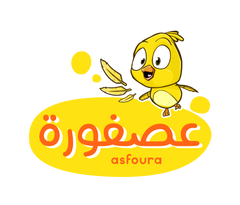Arabic is presented as a beautiful and complex language, much like our identity as Arabs. Its extensive vocabulary, its absolute artistic calligraphy, its deep expressions - I would have loved to be able to flaunt it. But I can't. Because as a young child, all I could see was the complex diacritics (تشكيل) and unfamiliar terms. I was discouraged because I never felt competent enough in Arabic and rather than practice it more often, I ran away.
I ran towards more attractive books, that spoke to my age and mind. Books I found in English that were engaging, relevant to my interests and as diverse as ever. I could find multiple titles of any topic on my mind to pick from. The literature is endless and exciting so I was drawn in and never let go. Unfortunately, I let go of Arabic instead.
Years and many, many experiences later I found a term for my confusion; diglossia. In basic terms (i.e., the first definition that comes up on our beloved Google) it is "a situation in which two languages (or two varieties of the same language) are used under different conditions within a community, often by the same speakers. The term is usually applied to languages with distinct ‘high’ and ‘low’ (colloquial) varieties, such as Arabic."
There you go. First example - Arabic.
It was relieving to realise that, wait, I am not alone. It is not only my problem. It is a problem, one we face as Arabs because we are required to basically speak two languages fluently when one is much, much less practised than the other. So, how can I overcome this with my child?
Firstly, I realised I need to speak to him more often in Arabic. My husband used to joke that I treated my baby as I would a dog, speaking to him in English as if he is a foreigner who did not understand my language. It's true. I do not know why I thought if I spoke to him in English, it would be an easier language for him to comprehend. When I started consciously switching to Arabic, I found that he picked it up with the exact same ease of English. Now I am no language expert and, as we are always told, each child is different especially in linguistics. But I do think we give them less credit than they deserve and we should realise that a big part of picking up a language is exposure.
Secondly, I decided to make Arabic FUN. The games, the songs, the cartoons - and naturally the books. Those can be in Arabic, too, you know? I discovered there are excellent books already in the market (and some even better books recently introduced to the market, hint hint). When my son felt like Arabic was simply a part of life and not something imposed on him for educational purposes, he did not feel the need to reject it.
And lastly, I stopped judging myself. Yes, I speak to him in English often. But he also runs after any bird he sees and chants "يلا حالاً بالًا بالاً حي أبو الفصاد", so I must be doing something right.



